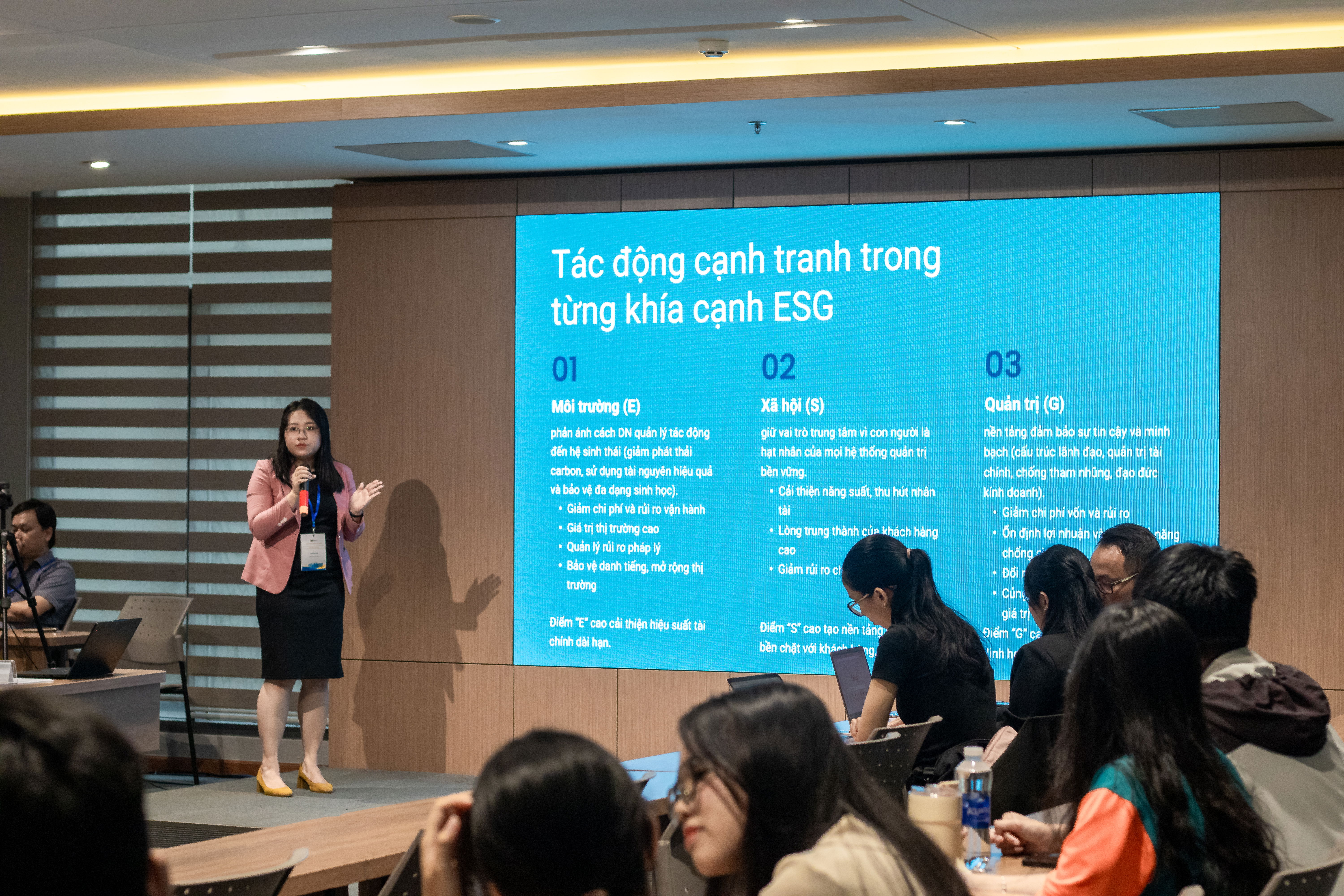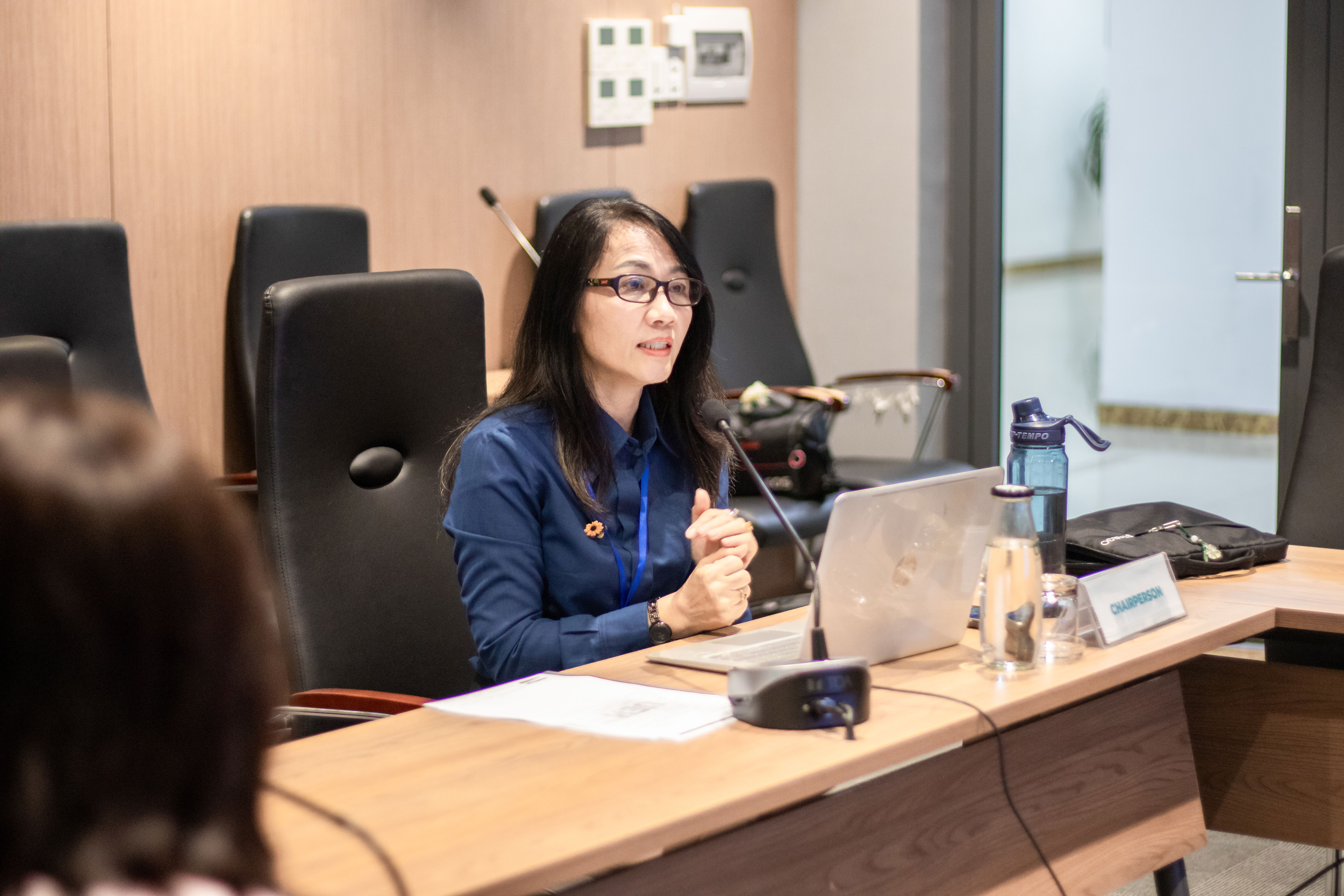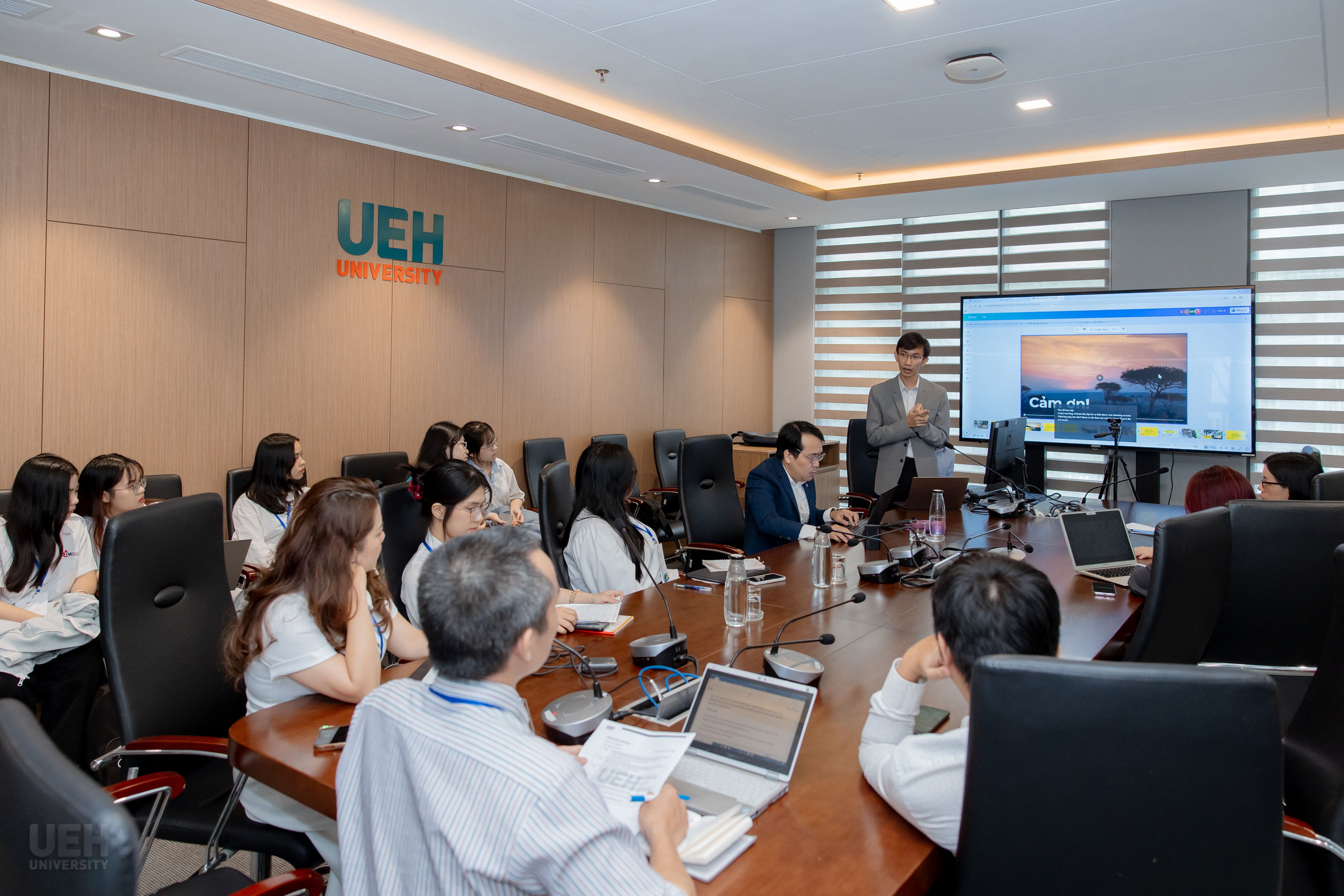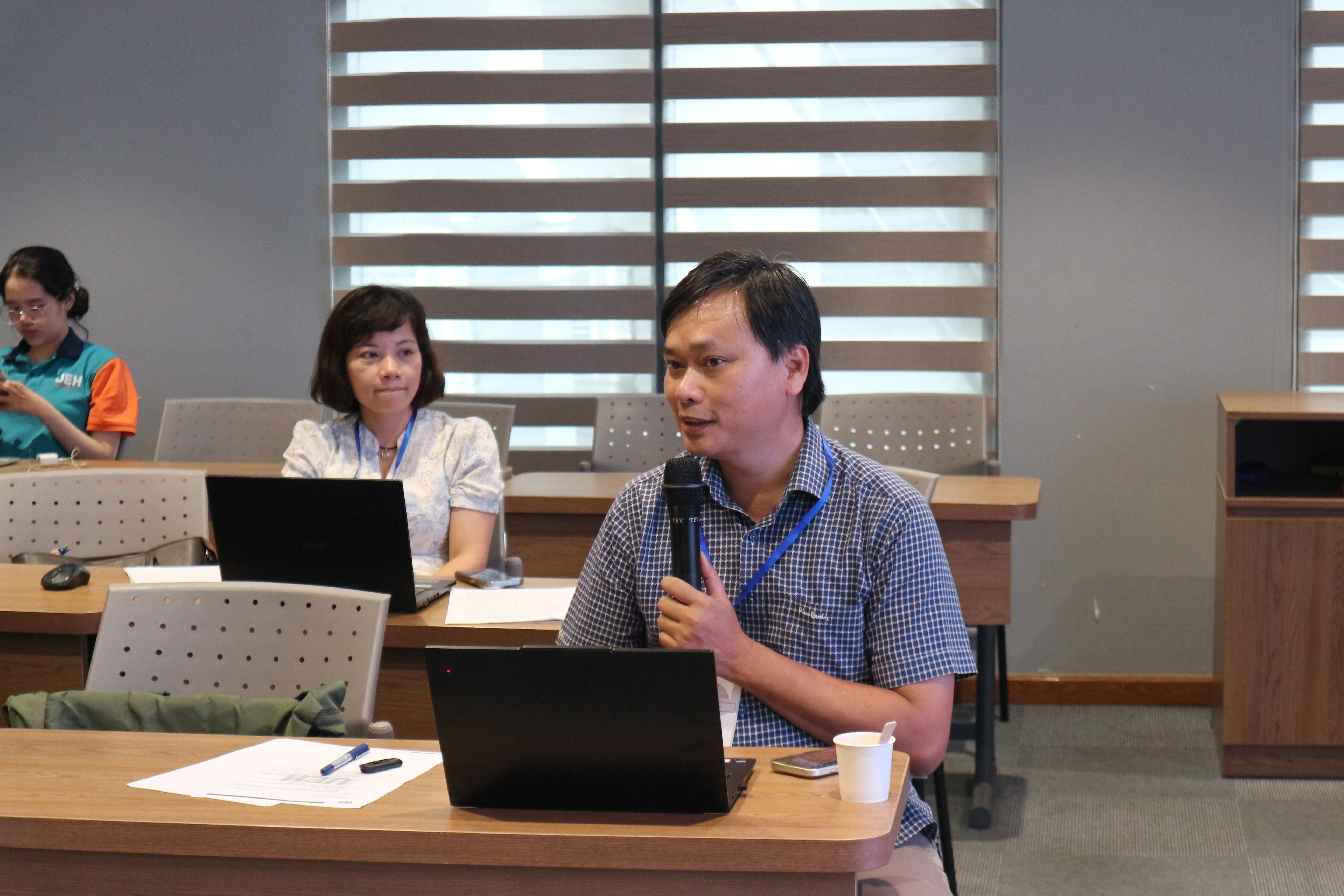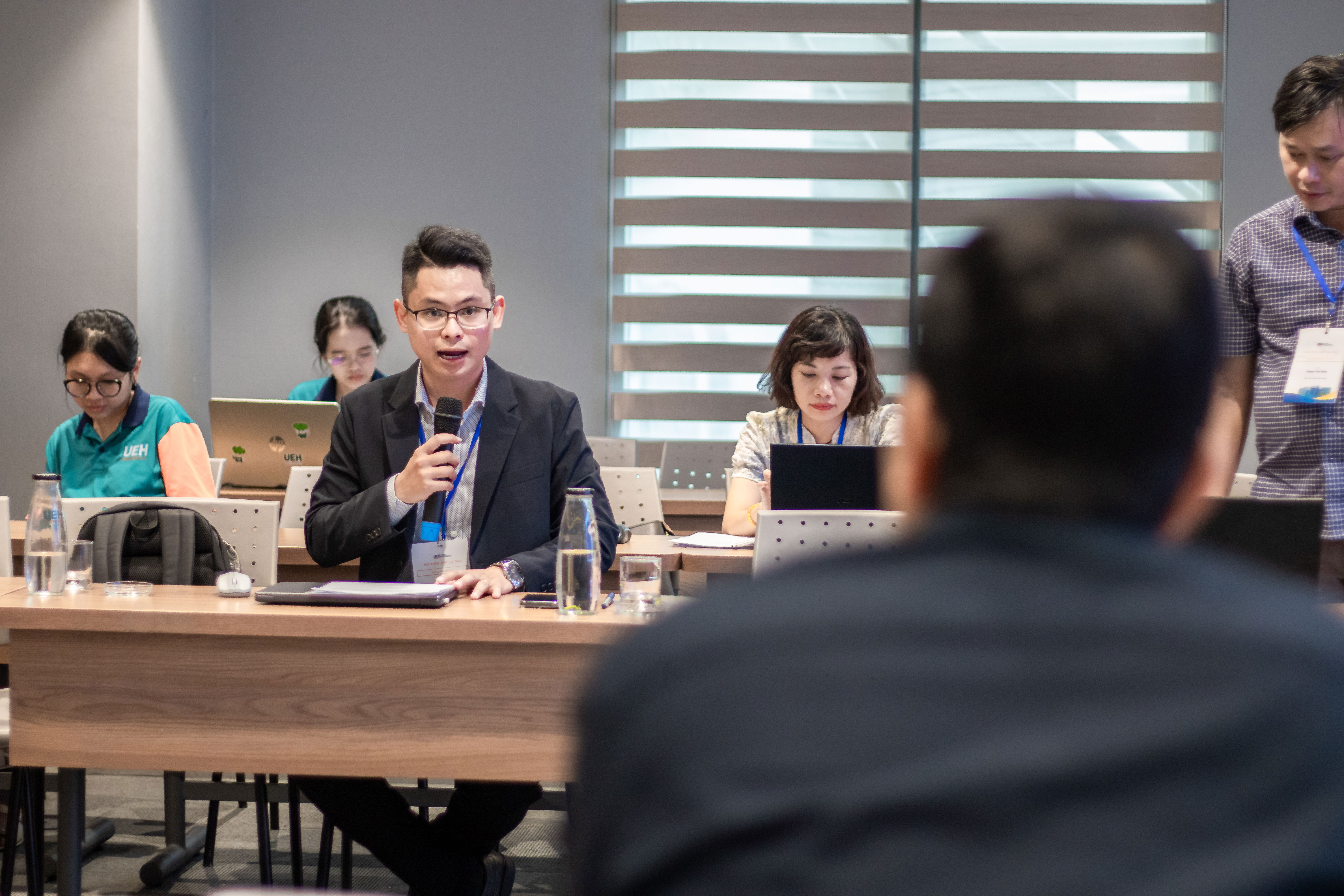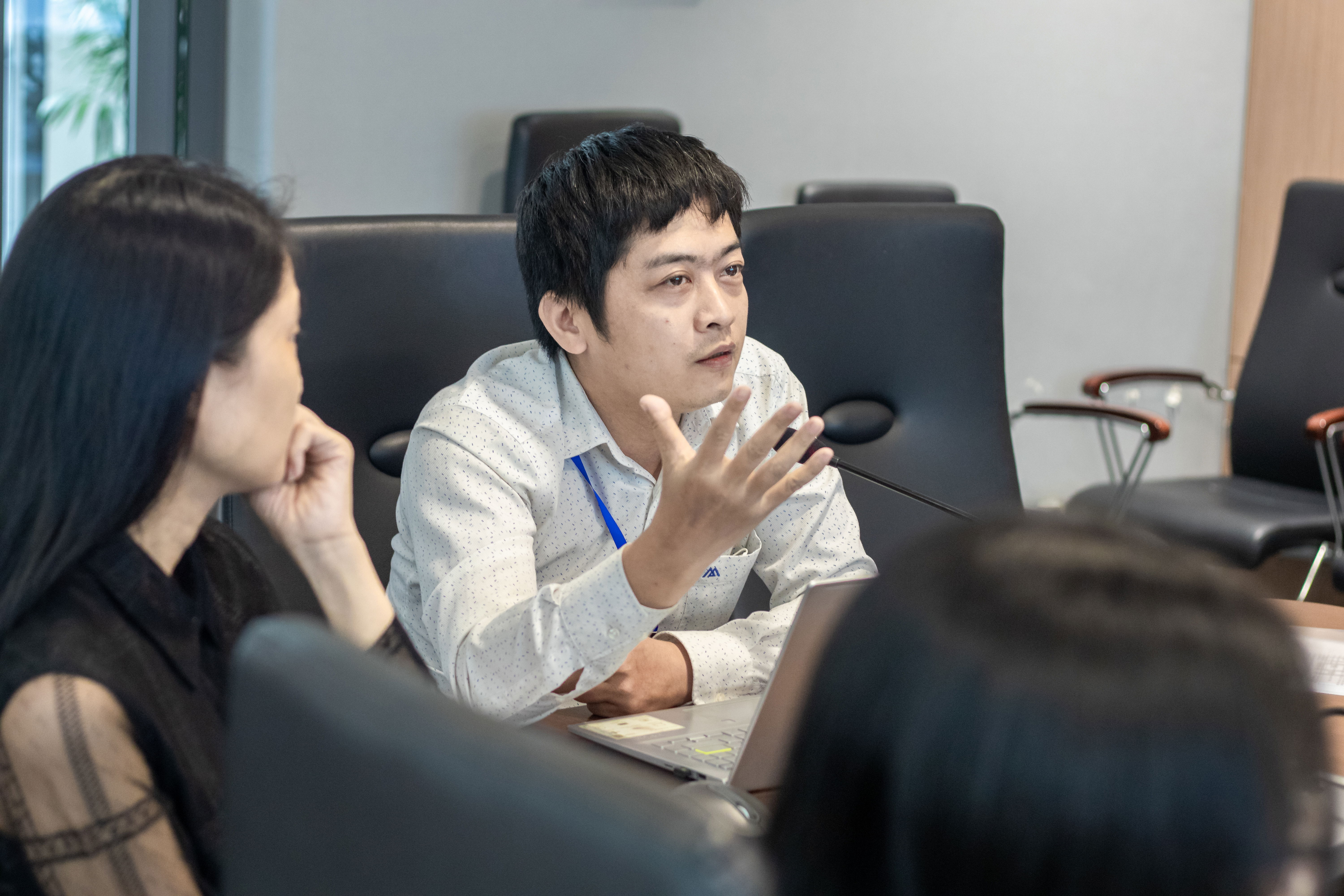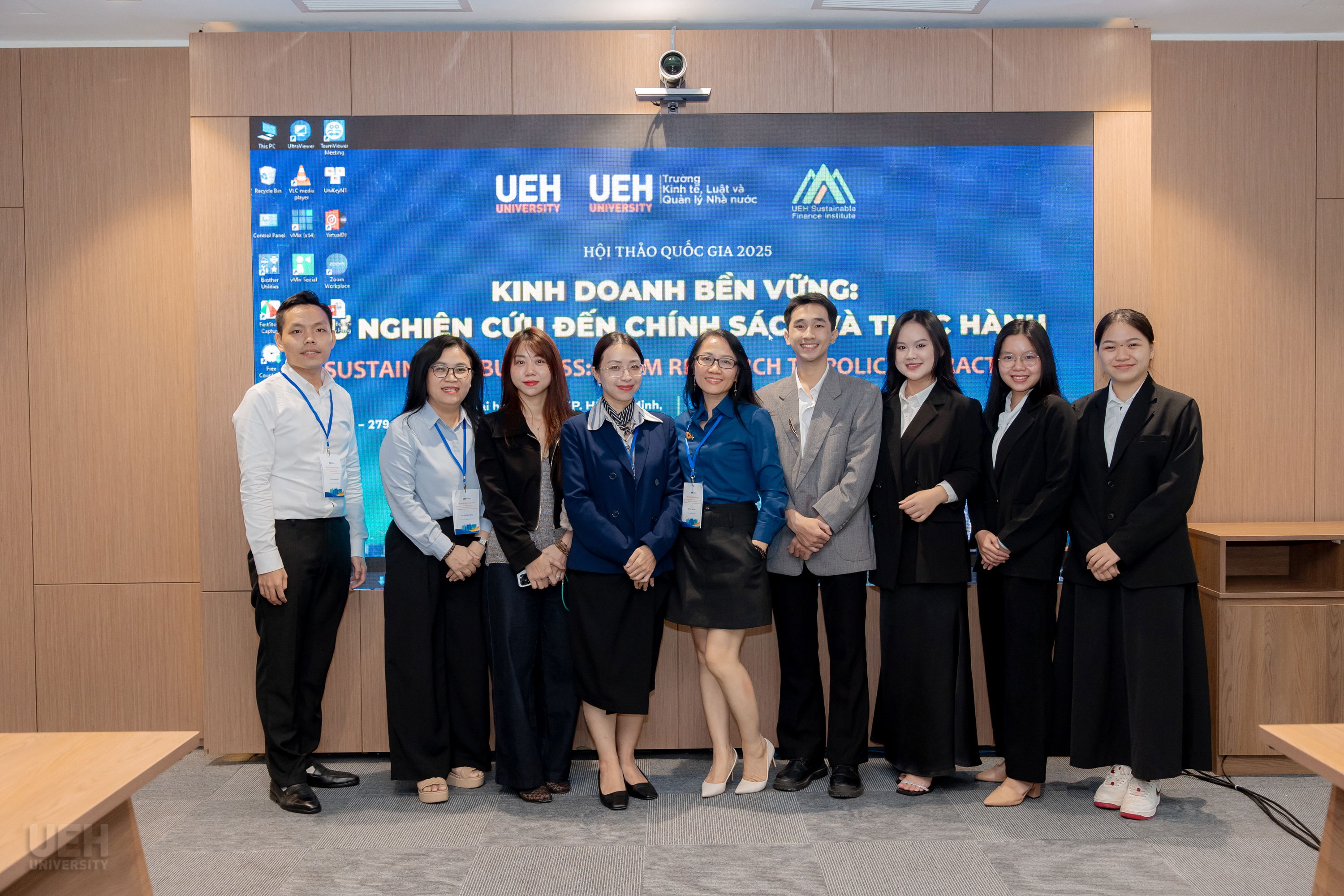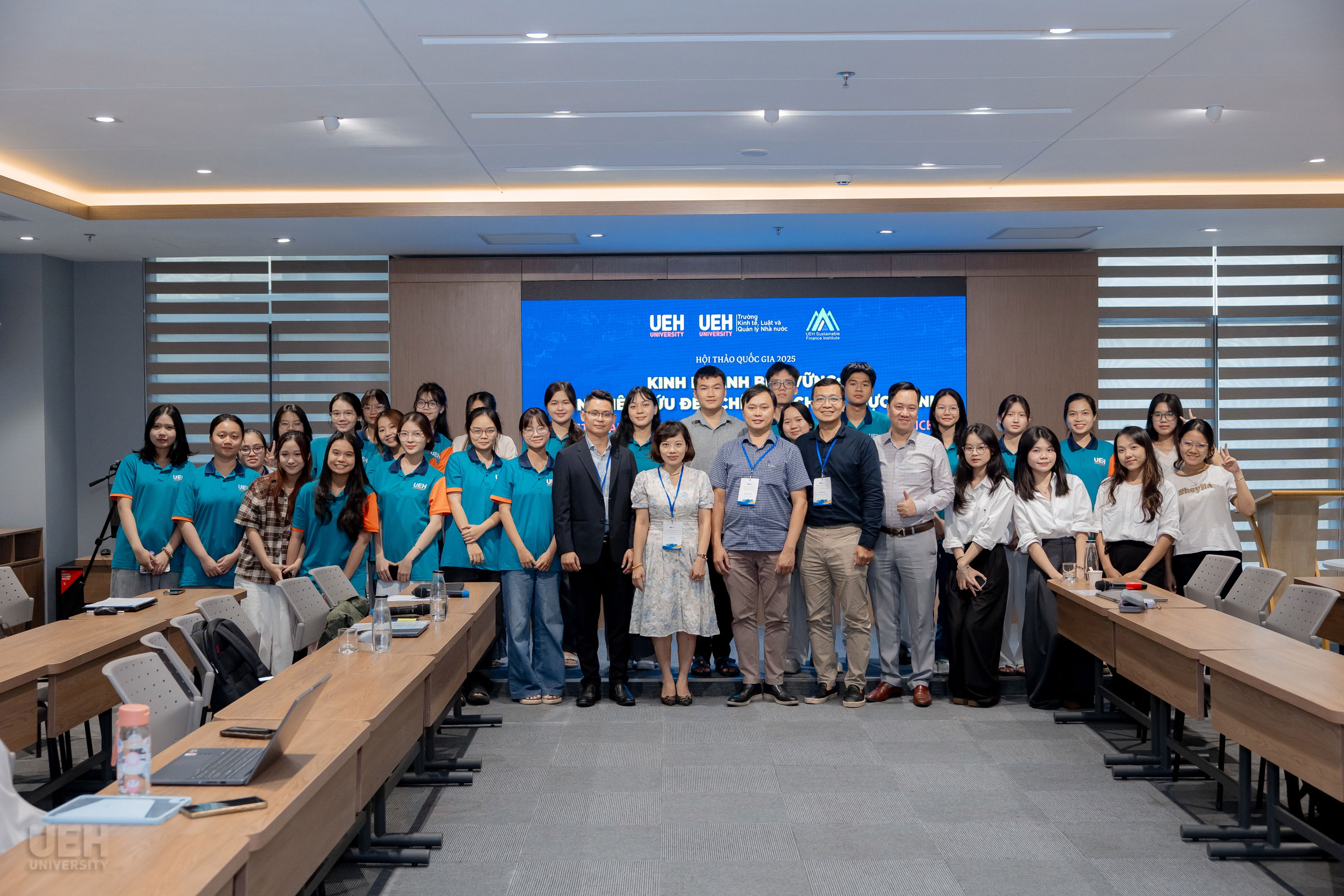National Scientific Conference 2025 - “Sustainable Business: From Research to Policy and Practice”
The National Conference themed “Sustainable Business: From Research to Policy and Practice” (as part of the CELG-UEH 2025 National Conference Series) was successfully organized by the UEH Sustainable Finance Institute on the afternoon of October 3, 2025.The session attracted strong interest from the academic community, with a total of 55 research papers submitted. After peer review, 35 full papers were accepted—30 of which were registered for presentation (both onsite and online), while 5 papers are undergoing revisions for the second review round. These figures reflect not only the quality and appeal of the conference but also the commitment of researchers and the growing interest of the business community in Vietnam’s sustainable development issues.
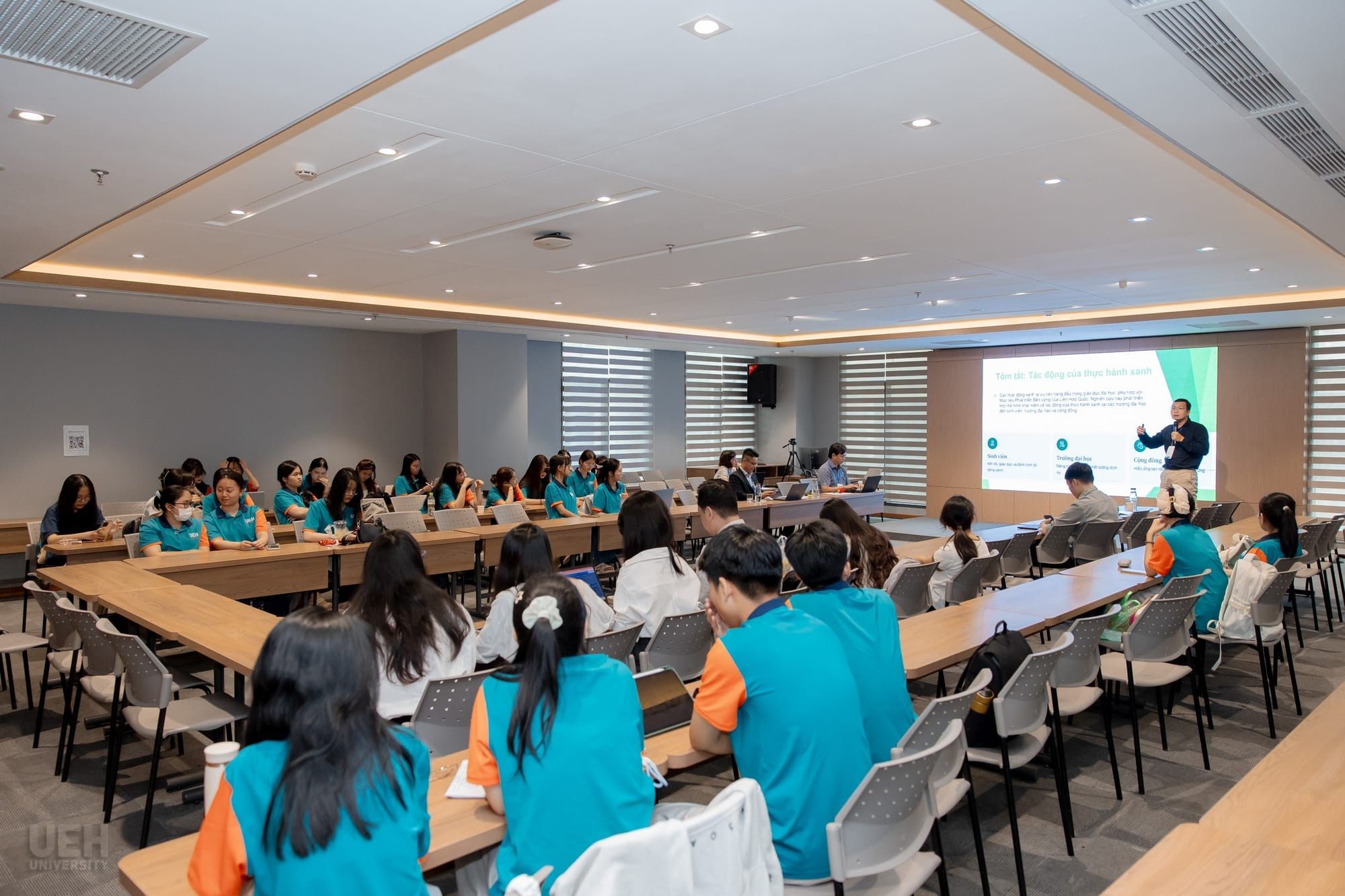
The event gathered numerous scholars, experts, policymakers, PhD candidates, graduate students, and undergraduates.
Research papers were grouped into three main themes, reflecting the Institute’s focus on promoting green growth and sustainable governance.
Main Themes and Contents
1. Theme A – Sustainable Business: Finance and Governance (14 papers):
This theme attracted the highest number of submissions, focusing on sustainability issues within enterprises. Studies on green bonds, green credit, activity-based costing, and ESG-based governance highlighted improvements in financial performance and green transition. Research on high-quality human resource development, supply chain ethics, and financial inclusion comparisons among ASEAN countries opened new research directions for Vietnam. Circular economy business models and carbon markets were also discussed, contributing to long-term sustainable development strategies.
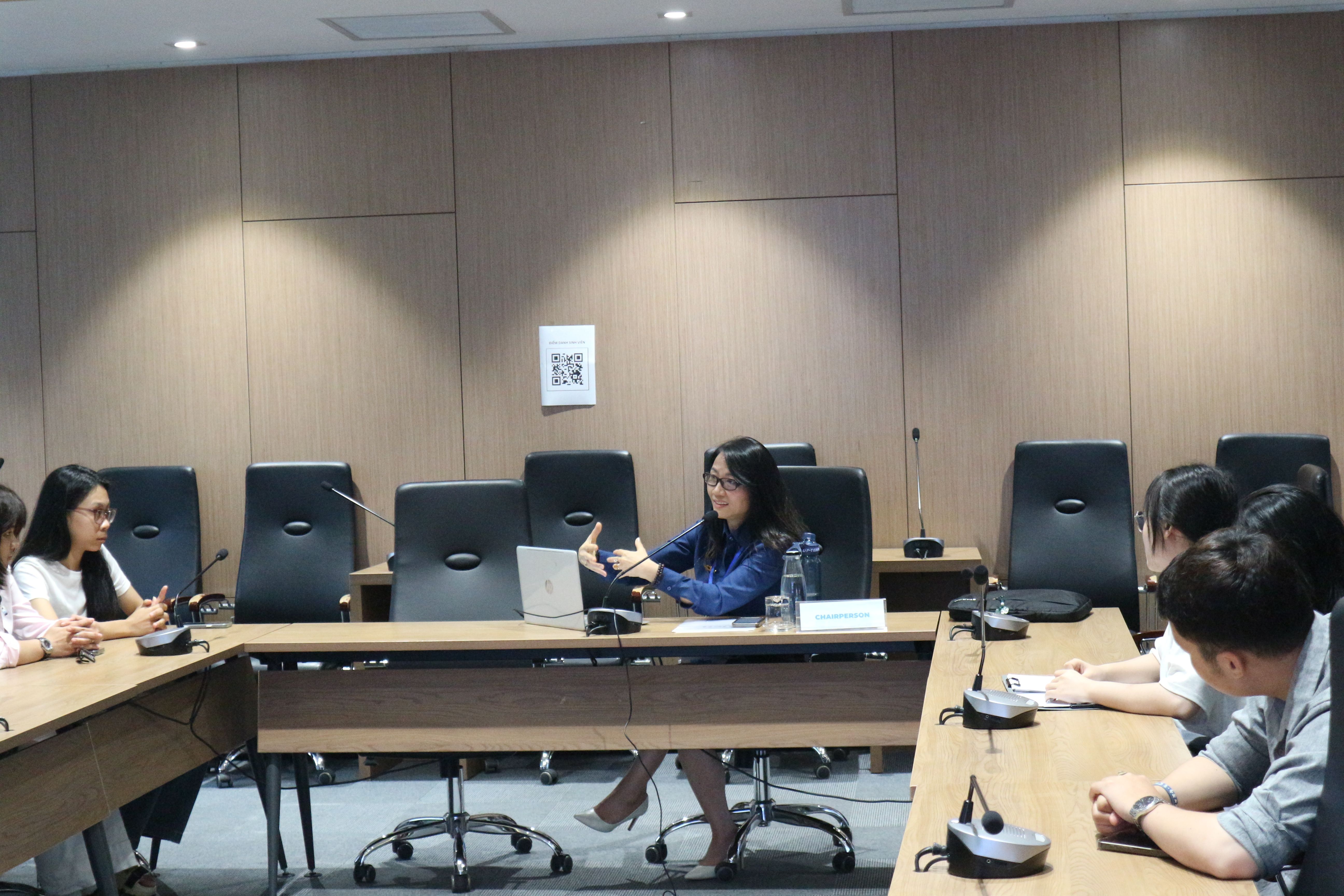
Assoc. Prof. Dr. Bùi Thị Mai Hoài – Dean of the UEH Sustainable Finance Institute – chaired the parallel session on Sustainable Business: Finance and Governance.
2. Theme B – Technology and Innovation for Emission Reduction and Green Growth (9 papers):
This theme emphasized the role of science and technology as key drivers of the green transition. Highlights included innovative applications of IoT and AI for mitigating environmental conflicts, as well as the integration of geospatial and blockchain technologies to optimize supply chains in sustainable agriculture and tourism. Other papers addressed renewable energy development, greenhouse gas (GHG) measurement systems, and corporate emission inventories. The role of the innovation ecosystem - built upon collaboration among businesses, universities, and governments - was also a focal point.
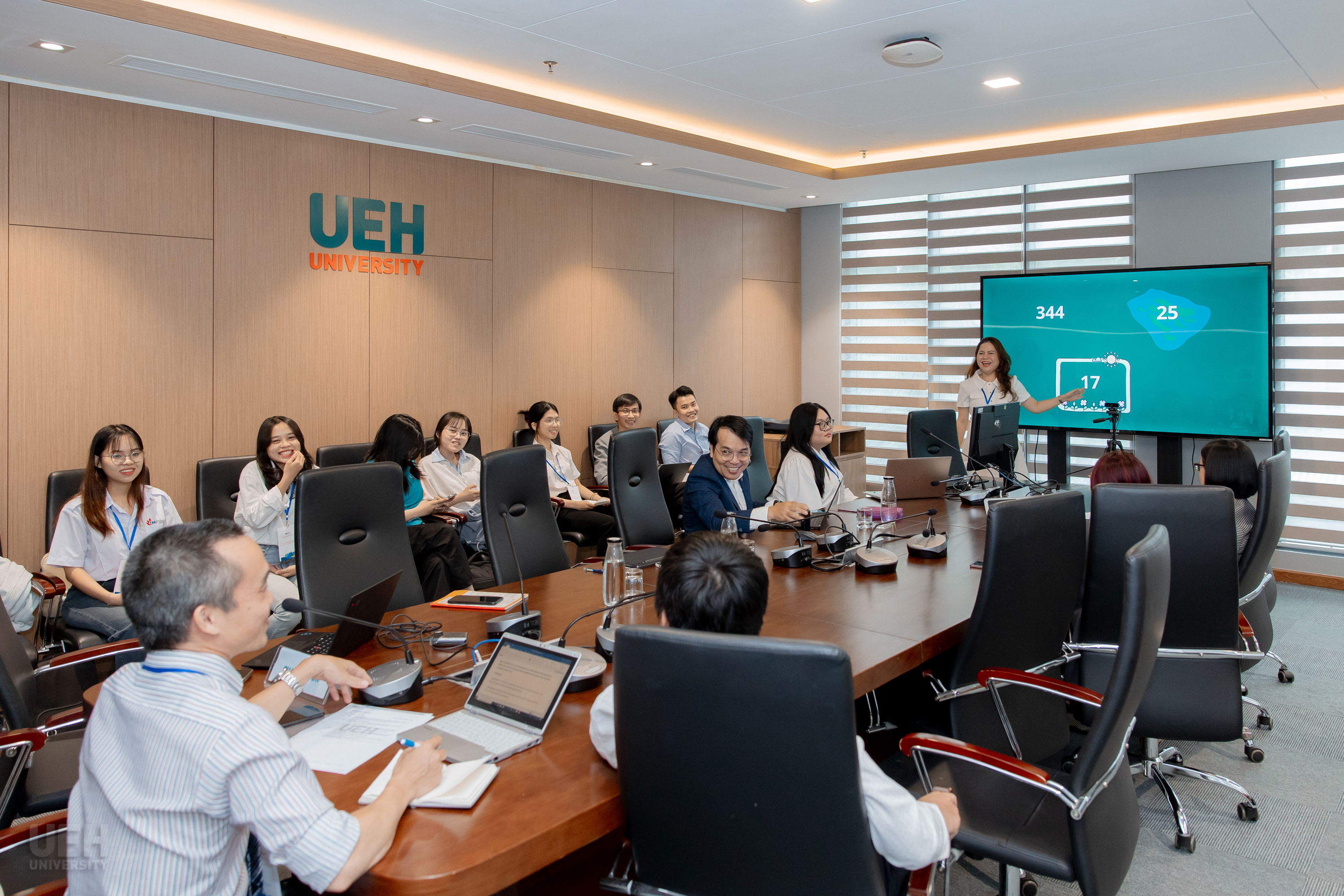
The discussion session on Technology and Innovation for Emission Reduction and Green Growth was lively and engaging.
3. Theme C – Sustainable Development and Public Policy (12 papers):
This theme took a macro-level approach, focusing on the role of governments and public policies in coordinating and promoting sustainable development at national and local levels. The papers analyzed and measured sustainability performance across provinces using composite indicators, evaluated the impacts of public policies, and proposed legal frameworks addressing cross-sectoral issues such as energy security, sustainable urbanization, and social inequality.
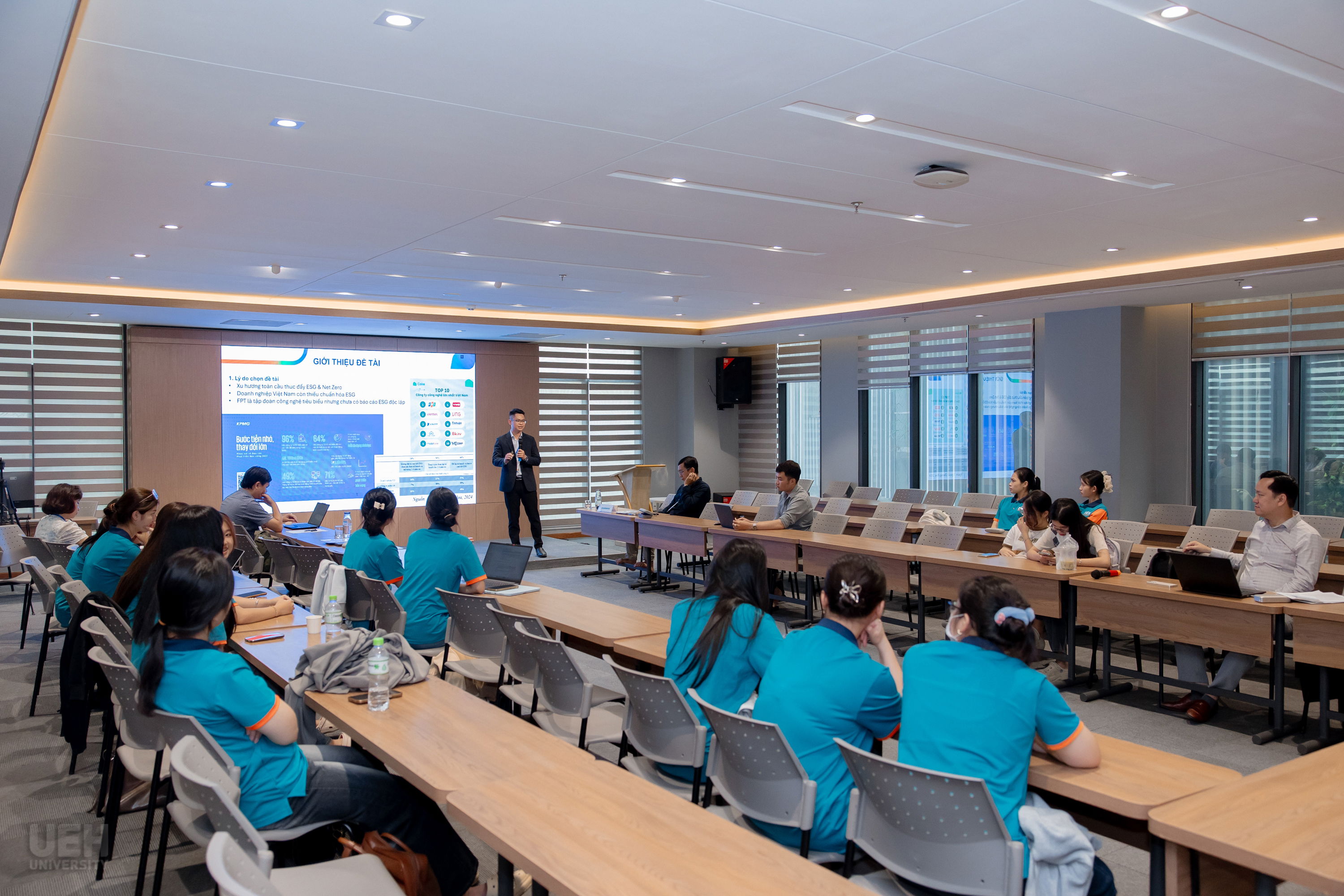
Several attractive topics were presented during the session on Sustainable Development and Public Policy.
Academic and Policy Contributions
The papers demonstrated strong academic value through modern methodologies such as bibliometric analysis, Partial Least Squares Structural Equation Modeling (PLS-SEM), and Life Cycle Assessment (LCA). These approaches helped identify research gaps in sustainable governance and finance within Vietnam and the broader ASEAN context. From a policy perspective, the studies offered practical recommendations, including improving legal frameworks for green finance, developing national emission factors for SMEs, and enhancing multilateral cooperation to achieve net-zero emissions. These contributions not only help enterprises strengthen competitiveness but also provide scientific evidence for policymaking, supporting Vietnam’s deeper integration into global sustainable development trends.
